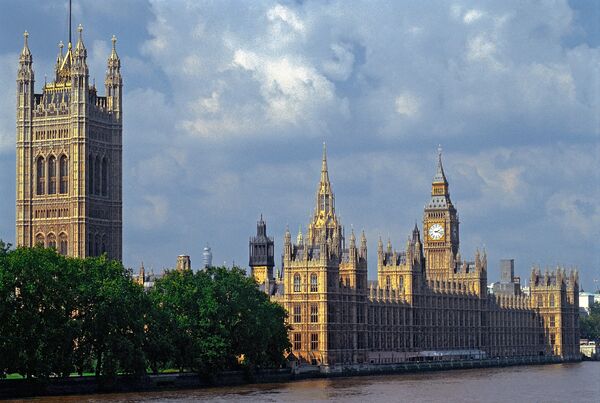After 13 years of complete Labor dominance in the Parliament and at Downing Street, the British are preparing to put on conservative attire. However, they will hardly dare to fully change colors from red (color of the Labour Party) to blue (color of the Conservatives). All the latest polls as well as various analysts, psychics, and the most reliable political forecasters - the bookmakers - suggest that after the May 6, 2010 general election, Britain will be dressed in a blue top and red bottom with substantial elements of orange (color of the Liberal Democrats) in the middle.
It appears that the Tories are set to form the largest parliamentary party in the House of Commons, but will fall short of securing an absolute majority. As for Labour, the party is facing the most disgraceful and shameful defeat since 1983 (when the Tories had an absolute majority of 144 votes) and possibly even since 1935 (Tory majority of 242 votes). For all of this they should thank the party's leader and Prime Minister Gordon Brown and of course the global financial and economic downturn. For the British, the former and the latter are firmly associated with the word "disaster."
The Liberal Democrats should be preparing for an unprecedented increase in their seats in the Parliament. Some analysts even predict that the country's third largest party will altogether bypass the Labour and finish second in the elections. This is a bold hypothesis, but taking into account the inherent sense of self-preservation the British Isles residents are known for, it has very little chance of becoming a reality. In the wake of the economic downturn, it would be a pure folly to bring to power the liberals with their fuzzy programs and complete lack of government experience. The British are quite reasonable people in that sense.
Unless something extraordinary happens before May 6 (for example, Conservative leader David Cameron will be accused of engineering the death of Princess Diana), the Conservatives can win between 280 and 320 seats out of 650 seats in the House of Commons. The Labour Party may receive approximately 200 to 230 seats, and the Liberal Democrats about 90 seats. As a result, the UK will find itself in an unstable political situation, which is known as "hung parliament" in the local political parlance. It means that none of the major political parties will have an outright majority of 326 votes.
The parties will either have to form minority government coalitions, enter into various agreements and support pacts, or trade cabinet posts to somehow run the country. In any event, this is not looking promising for the U.K. The example of neighboring Germany, where coalition governments have successfully existed for 40 years now, is unlikely to succeed in Britain. The Deutsche Ordnung is incomparable with the British political stubbornness.
These elections in Britain are all about immigrants, jobs, and taxes, the most obvious and painful issues after the economic downturn. Analysts warn, however, that the economic crisis has not yet fully faded away and may well come back in connection with the Greek debt and its impact on the country's financial system.
Tory leader David Cameron has already announced that when he becomes Prime Minister, he will make a bonfire of all legislative "achievements" of the Labour Party, including the ID cards introduced by them and some of the criminal law legislation (to free up prisons). Immigrant quotas will be repealed and immigration reduced; government and social spending will be cut significantly.
Prime Minister Cameron will be facing a very difficult task. The London Times laid it down by quoting the Bank of England Governor Mervyn King, who had allegedly told a colleague that whoever was in Downing Street "would have to impose such severe cuts that resultant unpopularity would exile them from power for generations."
With regard to relations with Moscow, they had started to deteriorate under Blair and sunk to such a low level that were barely kept alive under Brown. Therefore, we simply have nothing to lose here, and can only improve these relations on a purely pragmatic, economic basis. In international politics, London and Moscow are unlikely to see eye to eye, as undermining Moscow's influence on the periphery of its borders has always been the foundation of British foreign policy, whether back in the USSR or the Russian empire.
It is a common cliche that the British are prone to eccentricity. This is especially true in politics. They are also very keen on protecting their heritage and traditions. No wonder then that all of these traits are present in their Parliament. A little-known but worthy of copying curious fact: The House of Commons has only 427 seats, as has always been the case historically. However, the number of MPs currently stands at 650. And yet nobody is even considering rebuilding the House of Commons, as it would be tantamount to historical blasphemy.
The opinions expressed in this article are the author's and do not necessarily represent those of RIA Novosti.
MOSCOW. (Andrei Fedyashin, RIA Novosti political commentator)



